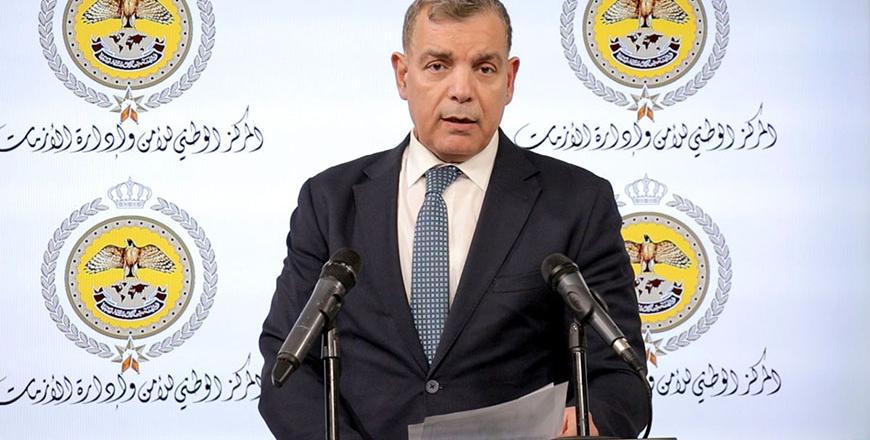- Local News
- Tue-2020-05-05 | 02:28 pm

The reported cases included three Jordanians and an Arab national.
Speaking during a press briefing at the National Centre for Security and Crisis Management, Jaber added that three COVID-19 patients who recovered were discharged from hospitals, leaving 64 patients still receiving treatment.
The Kingdom’s total caseload has reached 465, the minister said, noting that a total of 87,618 coronavirus tests have been conducted in Jordan since the beginning of the crisis.
Commenting on the reasons behind maintaining the curfew and keeping coronavirus-related restrictions in place, the health minister said that COVID-19 requires "particular caution” and specific measures at the borders to ensure the safety of all.
Also speaking during the press briefing, Minister of State for Media Affairs Amjad Adaileh reiterated that all economic sectors are reopening as of Wednesday, including those that were not allowed to operate fully during the lockdown.
Establishments will be permitted to work at full production capacity provided that the percentage of Jordanian employment does not fall below 75 per cent.
He added that all governorates will remain closed, as movement among the governorates will be restricted to only permit holders, while curfew passes for private sector workers who need such permits can be issued through their workplaces through the previous mechanism.
Adaileh also affirmed the cancellation of the odd-even system for operating vehicles as of next Sunday, after which citizens will be permitted to use their vehicles within every governorate from 8am until 6pm, including public transport vehicles, which must operate at a seating capacity of 50 per cent.
This decision applies to all of the Kingdom’s governorates, including Amman, Zarqa and Balqa, he noted.
Commenting on the work of public servants, he said that the situation will remain unchanged, with work restricted to institutions that provide services for citizens.
Work at these institutions should be carried with no more than 30 per cent of the employees, Adaileh said, noting that, as the need arises, the percentage may be increased up to 50 per cent until the end of the holy month of Ramadan.
He said that the government is working on developing a how-to guide for ministries and official institutions to set priorities for providing services and to establish a plan for the gradual return to work that ensures the safety of service recipients and providers.
Regarding Defence Order No. 11, which
includes imposing penalties on institutions whose workers, clients or
customers do not wear face masks, Adaileh stresses that providing safety
equipment is the joint responsibility of the institutions and
citizens.










